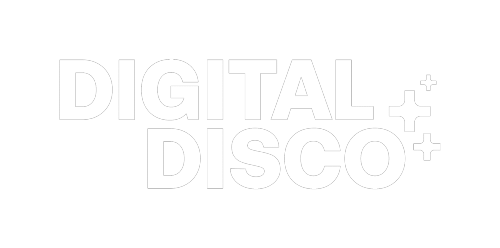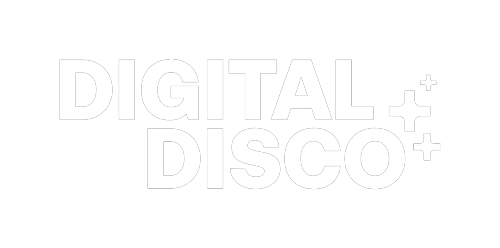What Is SEO and Why Is It So Important?
If your business has a website - as most modern-day businesses should - you’ve likely heard of Search Engine Optimisation (SEO). It’s a term often surrounded by technical jargon such as ‘search volume’ or ‘backlinks’ and can easily be considered too complex for business owners to bother with. The good news is that SEO services in Australia - on the Sunshine Coast and beyond - doesn’t have to be as complicated as it seems.
What Is SEO?
Put simply, Search Engine Optimisation is just that - a way of optimising your website so that it appeals to search engines. Whenever you type a search term or keyword into Google, you’re likely going to get millions upon millions of results. The way Google decides which websites to list first is through an algorithm.
This algorithm combs through every website that features that search term or keyword and ranks them from most relevant to least. Websites that are reputable, have high-quality content, are easy to navigate, and feature the exact keywords you searched go to the top of the list. SEO is the process of ensuring all of those ducks are lined up so that the algorithm bumps your website up the ranking list for a specific search term or keyword.
Why Is SEO Important?
Why does this matter? Because so many people use Google to solve their problems! Whether they’re searching for a specific product or need an answer to a question, Google is usually the first place they turn to. If you know what your ideal client/customer is searching for, you can use SEO to aim for that top position on Google and become the website that your ideal client clicks on to get their desired product or answer.
In other words, it’s organic marketing at its finest. Once your SEO is set up and you’re ranking for desired keywords, you can sit back and let Google and your customers do all the work. The tricky parts are finding the right keywords that will yield conversions and optimising your website to a high enough standard that Google bumps you up the list.
Your Guide To SEO
SEO can be broken down into a series of crucial elements that specialists believe the algorithm takes into account. I say ‘believe’ because nobody knows for sure - search engines don’t tend to publish their algorithmic secrets - but years of trial and error plus a few official announcements to back up theories have whittled SEO down to a fine art.
Keywords
Let’s start with keywords. Keywords are the search terms people type into Google to find relevant online content. When trying to find the right keywords to target on your website, it’s all about striking the right balance. You want to target keywords that have a high search volume (are used by many searchers) and low competition (aren’t used by many websites).
A great place to start is to imagine what you would type into Google to find your product or service. Extrapolate on that. Go as broad as possible and as niche as possible. Ask yourself what somebody would type into Google if they need your product or service, but don’t know what it’s called or that it exists. Consider whether people are searching locally for your product or service and include your location (ie. SEO Sunshine Coast).
Once you have your list of terms, it’s worthwhile investing in some SEO software. This will tell you the search volume of a specific search term, the competition, traffic, the number of results and many more valuable data points. Alternatively, you can hire an SEO Specialist to do this research for you.
Content
Once you have your keywords, it’s time to create some content. The Google algorithm loves high-quality content. Choose a different keyword focus for each page of your website and write high-quality, informative content that features those keywords. Start a blog to target even more keywords.
It’s crucial that all of the content on your website is original, relevant to the chosen keywords, engaging, an appropriate length and high-quality. Avoid over-using the keywords as Google will flag this as ‘keyword stuffing’ and consider the content low-quality. Aim for at least 400 words per web page and use your keywords at least three times on the page.
Technical SEO
This is where things can get a little more complicated. Technical SEO involves optimising the technical side of your website with your chosen Keywords. The main things to think about here are SEO Titles, Meta Descriptions, URLs, and Alt Tags.
It’s also important to ensure your website is easy to navigate and works properly. Fix any error codes, ensure that every page on your website is ‘crawlable’ (available to be accessed by Google), and put relevant links on each page so that the user can easily access other pages such as your services, pricing, contact page, and more.
Backlinks
Backlinks are a valuable part of your off-page SEO strategy. A backlink is when another website links to your website. The more high-quality backlinks you have, the higher quality Google will consider your website overall. They tell Google that other websites consider your website a valuable hub of information.
One of the easiest ways to get high-quality backlinks is through guest blogging. Reach out to websites that have a high Authority Score on Google (are highly ranked by Google). Ask if they would post a blog published by you that links back to your products or services. This is usually a win-win. They get free, high-quality content for their own SEO needs and you get a high-quality backlink in return.
Search Engine Marketing
Finally, we have paid ads, or Search Engine Marketing (SEM). This refers to marketing strategies such as Google ads, social media ads, and any pay-per-click (PPC) ads online. You don’t need to incorporate SEM into your SEO strategy, but the two can work well together.




